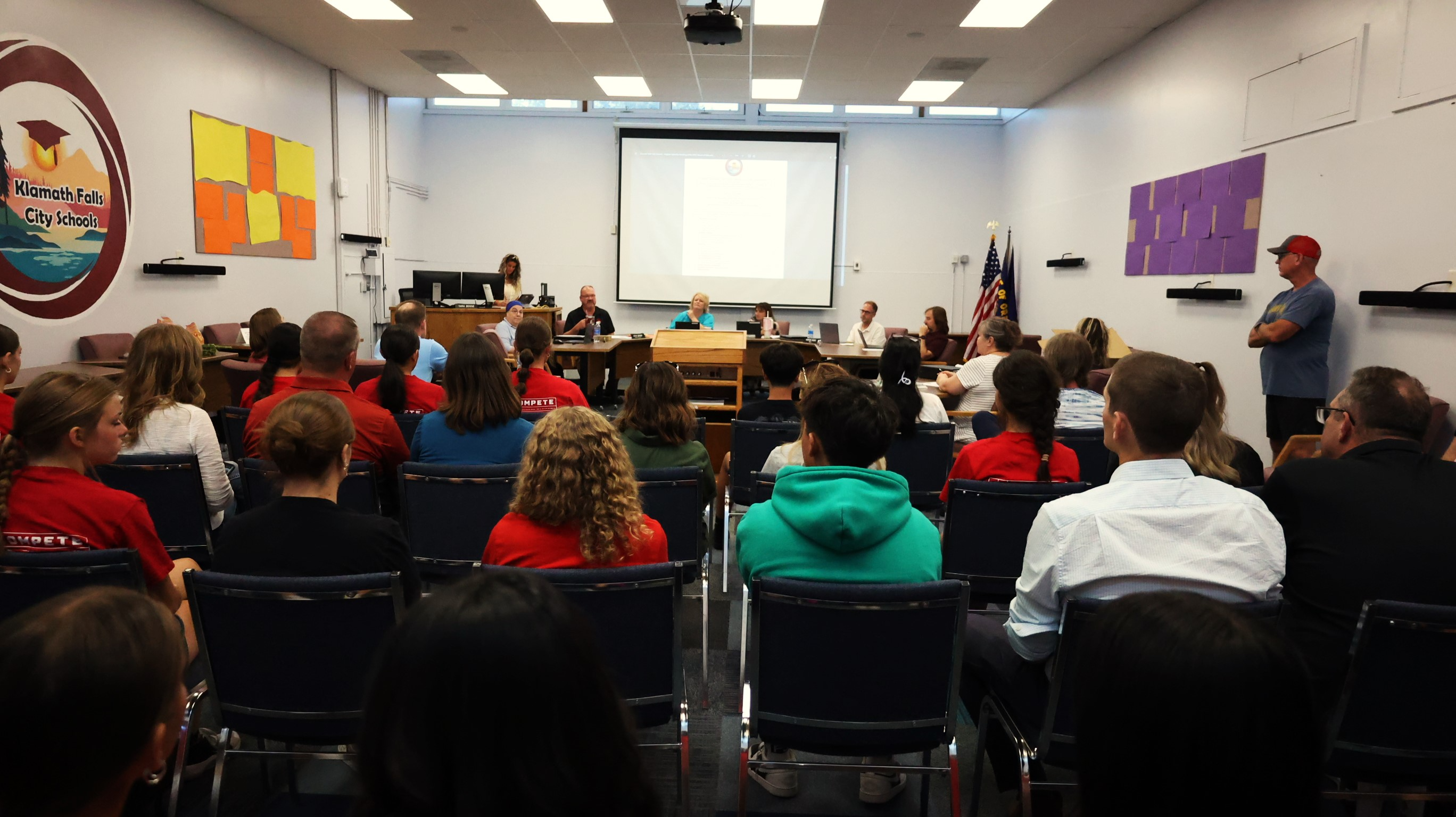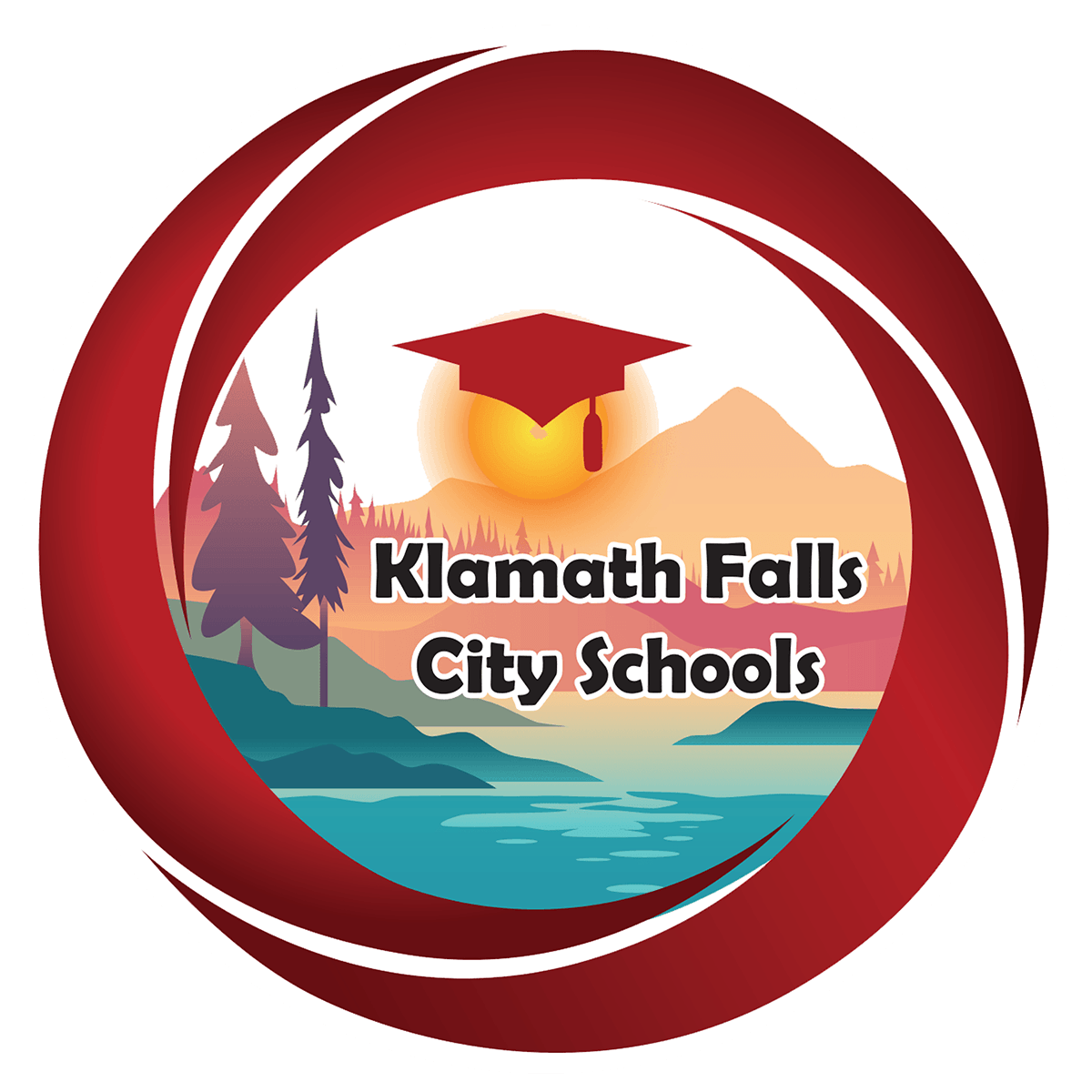KFCS Board of Education Meetings
Calendar, Agendas, Registration for Virtual Attendance & Public Comment

Accessibility and Accommodations Requests
For questions about accessibility or accommodations for persons with disabilities, or to request a translator, interpreter, or other communication aids, please contact Tara Bosse at (541) 883-4700 ext. 7123 or bosset@kfalls.k12.or.us
Recorded Board Meetings:
Senate Bill 1502 requires public schools and college boards to live stream their meetings and post the meeting recordings on their websites and social media sites. This does not apply if a meeting is private. Allows remote testimony for most school and college board meetings.
Requires the governing bodies of school districts, education service districts, community college districts and public universities to live stream governing body meetings, if technically practicable, and to post the recordings of the meetings on their official public body websites or social media sites.
Except executive sessions. Requires educational institution governing bodies to also permit witnesses to testify via telephonic, electronic or virtual means if meetings also permit in-person oral testimony.
General Open Session
A quorum (e.g., three members of a five-member board and four members of a seven-member board) is required for all board decisions. With few exceptions, all board decisions and most deliberations must be conducted in public at regular, special or emergency meetings.
Meetings follow an agenda prepared by the superintendent in consultation with the board chair.
Source: OSBA publication "Boardsmanship for Oregon School District, Education Service District and Community College Board Members;" page 5.
Special, Emergency & Work Sessions
Special meetings may be convened by the chair, upon request of three board members, or by common consent of all or a majority of the board members. Special meetings are those meetings not on the calendar set by the board at the July organizational meeting. Local news media will receive written notice of the meeting at least 24 hours in advance.
Work sessions are special meetings in which the board meets but does not intend to take any action. Work sessions enable the board to gather information and discuss and review various aspects of an issue.
Emergency meetings are called only in the event of an actual emergency, and no business other than that related to the emergency can be discussed. Appropriate notice will be given to the public and the media, generally by email or phone.
Special, emergency and work sessions are all open to the public.
Source: OSBA publication "Boardsmanship for Oregon School District, Education Service District and Community College Board Members;" page 6.
Executive Session
Executive sessions are not open to the public. A board may call a special executive session or may go into executive session during a regular, special or emergency meeting to discuss subjects listed in ORS 192.660 or ORS 332.061. At least 24 hours’ notice should be provided prior to any executive session. Executive sessions are limited to topics listed in statute, which include dealing with employee discipline, dismissals and hiring; student records exempt from public inspection; negotiations; litigation; real estate; school safety matters; student expulsions; or student medical records, including educational program. Boards cannot call executive sessions for general personnel discussions.
Before going into executive session, the chair must state the sub-paragraphs of the statute (ORS 192.660 or 332.061) that define the subject matter of the session, e.g., “This board will meet in executive session under ORS 192.660 Section 2(d) to discuss negotiations.”
A board cannot take final action in executive session on any matter except student expulsion and issues related to student medical records, including educational programs. Discussion regarding initial offers of employment or property purchase can take place in executive session, but the decision to hire or purchase must happen in an open meeting.
Reporters may attend (cannot be excluded from) executive sessions with four exceptions: 1) when labor negotiations are being discussed; 2) an expulsion hearing for a student; 3) when a student’s medical records, including educational program, are being discussed; and 4) if the reporter or the reporter’s media organization is involved in litigation against the district, which is the topic of the executive session.
Source: OSBA publication "Boardsmanship for Oregon School District, Education Service District and Community College Board Members;" page 6.-
